In recent years, society has witnessed significant changes in several key areas of life. Health, technology, finance, and travel are becoming more interconnected and play crucial roles in shaping our future. This article explores how each of these domains is evolving and impacting the modern world.
Health: The Role of Technology in Improving Well-being
Health has always been one of humanity’s most important concerns, but in recent years, technology has revolutionized how we approach well-being. From wearable devices that track physical activity to advanced artificial intelligence (AI) in diagnostics, healthcare is becoming more personalized .
One notable advancement is telemedicine is one of the most significant changes in healthcare. It allows people to access medical consultations and advice remotely. This is particularly useful for individuals in rural or underserved areas, where access to healthcare professionals might be limited. With the help of smartphones and internet connections, patients can consult with doctors, receive prescriptions, and even get diagnoses without leaving their homes.
Another technological breakthrough in health is the development of artificial intelligence and machine learning. These technologies are being used to enhance the speed and accuracy of diagnoses. AI is helping doctors to identify patterns that would be difficult for humans to detect, thus leading to more accurate diagnoses and treatments.
The rise of wearable technology like fitness trackers and smartwatches are becoming increasingly popular. These devices monitor various metrics such as heart rate, sleep quality, and physical activity levels, providing users with real-time feedback about their health. This data allows for proactive health management and can even alert individuals to potential health risks before they become critical.
Technology: Innovation and the Digital Revolution
Technology has seen exponential growth in the past few decades, and its influence is pervasive in every aspect of modern life. From smartphones to virtual reality, the digital revolution are transforming industries, businesses, and even the way we live our daily lives.
One area where technology is particularly impactful is in the realm of finance. With the rise of cryptocurrencies and blockchain , financial transactions are becoming faster, more secure, and more decentralized. Bitcoin, Ethereum, and other cryptocurrencies have opened new doors for investment opportunities while also presenting challenges for traditional financial institutions. Bayar4D Daftar , on the other hand, has the potential to transform various industries by offering a more secure and transparent way to store and transfer data.
Cloud computing is another technological innovation that has changed the way businesses and individuals interact with data. By storing data and software on remote servers, cloud computing allows for easy access from any device with an internet connection. This has led to a more connected world, where businesses can operate globally and individuals can access a wealth of information at the touch of a button.
AI and automation are also disrupting various industries . These technologies are automating repetitive tasks, improving efficiency, and even making complex decisions in areas such as manufacturing, healthcare, and customer service. As AI continues to advance, we can expect even more groundbreaking innovations to emerge in the coming years.
Finance: Navigating the Digital Economy
The financial landscape is undergoing a massive transformation. Traditionally, finance has been a conservative industry with established institutions, but the rise of digital technology is introducing new ways to manage and invest money. The emergence of financial technology has brought about innovations that cater to a wider audience, making financial services more accessible and efficient.
Digital wallets have become the norm in many countries, allowing consumers to make purchases quickly and securely with their smartphones. Services like PayPal, Venmo, and Apple Pay have simplified the way people exchange money and manage their finances. Furthermore, blockchain technology is enabling new forms of digital assets, creating a decentralized financial system where users can engage in transactions without intermediaries like banks.
The growing popularity of cryptocurrencies is reshaping the financial sector. These digital currencies allow for peer-to-peer transactions and offer the potential for more secure and anonymous exchanges. Investors are also flocking to these assets as an alternative investment option, further highlighting the shift in the global financial system.
AI-powered financial management tools are also making it easier for individuals to manage their investments. These tools use algorithms to assess a user’s risk tolerance and financial goals, creating personalized portfolios without the need for a human advisor. The rise of robo-advisors is democratizing investment management, allowing even small investors to benefit from professional-grade advice.
Travel: The Future of Exploration and Adventure
Travel is another sector that has been greatly impacted by technological advancements. With the advent of online booking platforms, social media, and new transportation technologies, the way we travel has evolved drastically.
Travel planning has become easier with online tools like Expedia, Booking.com, and Airbnb has made it simpler to book flights, accommodations, and experiences with just a few clicks. Travelers now have access to a wide variety of options, often at lower prices, thanks to the competitive nature of the digital travel industry.
The development of ride-sharing services like Uber and Lyft has transformed the way people get around in cities. These platforms provide an affordable, convenient alternative to traditional taxis, allowing travelers to easily hail a ride from their smartphones. The impact of ride-sharing has been especially profound in urban areas, where it has reduced the need for personal car ownership and helped alleviate traffic congestion.
The airline industry has made significant strides . Advances in aircraft design, fuel efficiency, and airport automation are making air travel faster and more sustainable. New technologies, such as biometrics for faster airport security checks, are streamlining the travel experience, while electric and hybrid planes may soon reduce the carbon footprint of air travel.
Finally, technology has revolutionized the way we experience travel. Virtual reality (VR) is allowing people to explore destinations and cultural sites from the comfort of their homes. While VR cannot replace the physical experience of travel, it offers a unique way to explore the world and plan future trips.
Conclusion
The convergence of health, technology, finance, and travel is transforming the way we live, work, and explore the world. As technology continues to advance, we can expect these sectors to become even more intertwined, creating new opportunities and challenges. The future promises a more connected, efficient, and dynamic world, where innovation will continue to improve the quality of life across the globe.
Whether you’re monitoring your health with a wearable device, investing in cryptocurrency, or booking your next vacation through an online platform, technology is shaping the way we interact with the world. Embracing these changes can lead to a more sustainable, prosperous, and enjoyable future for everyone.
Embracing the Future: How Health, Technology, Finance, and Travel Are Shaping Our Lives

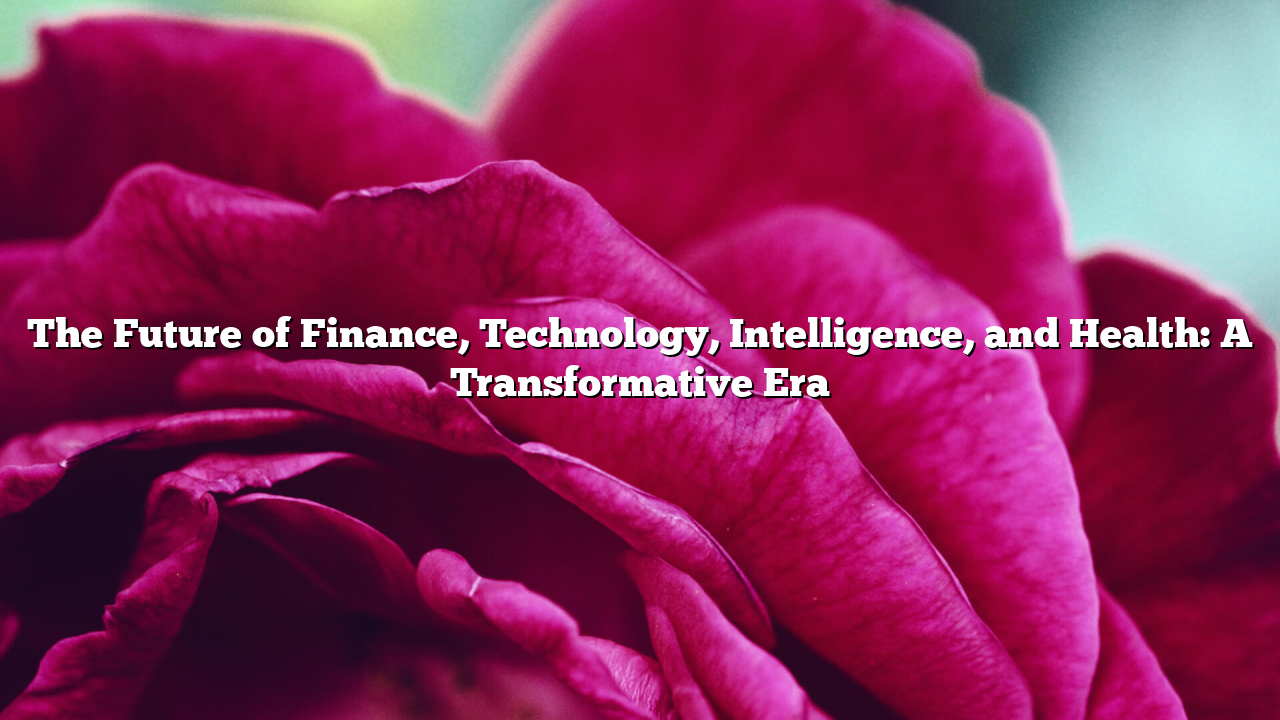
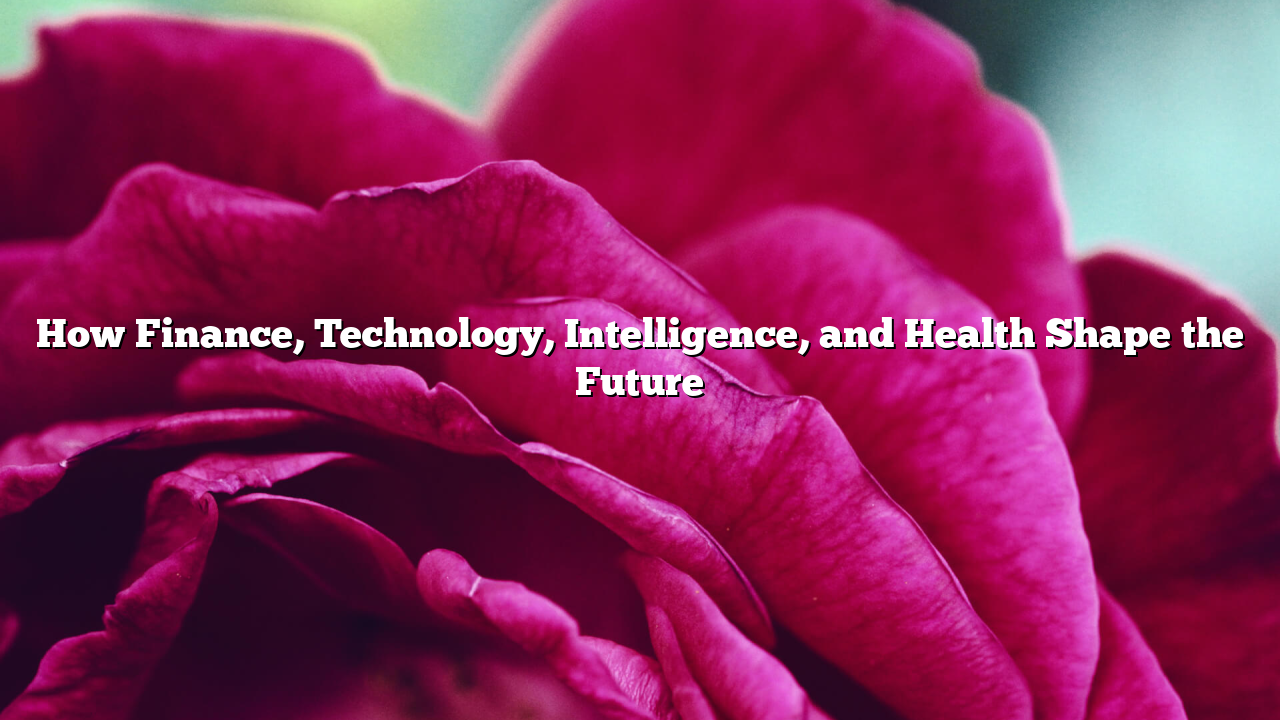
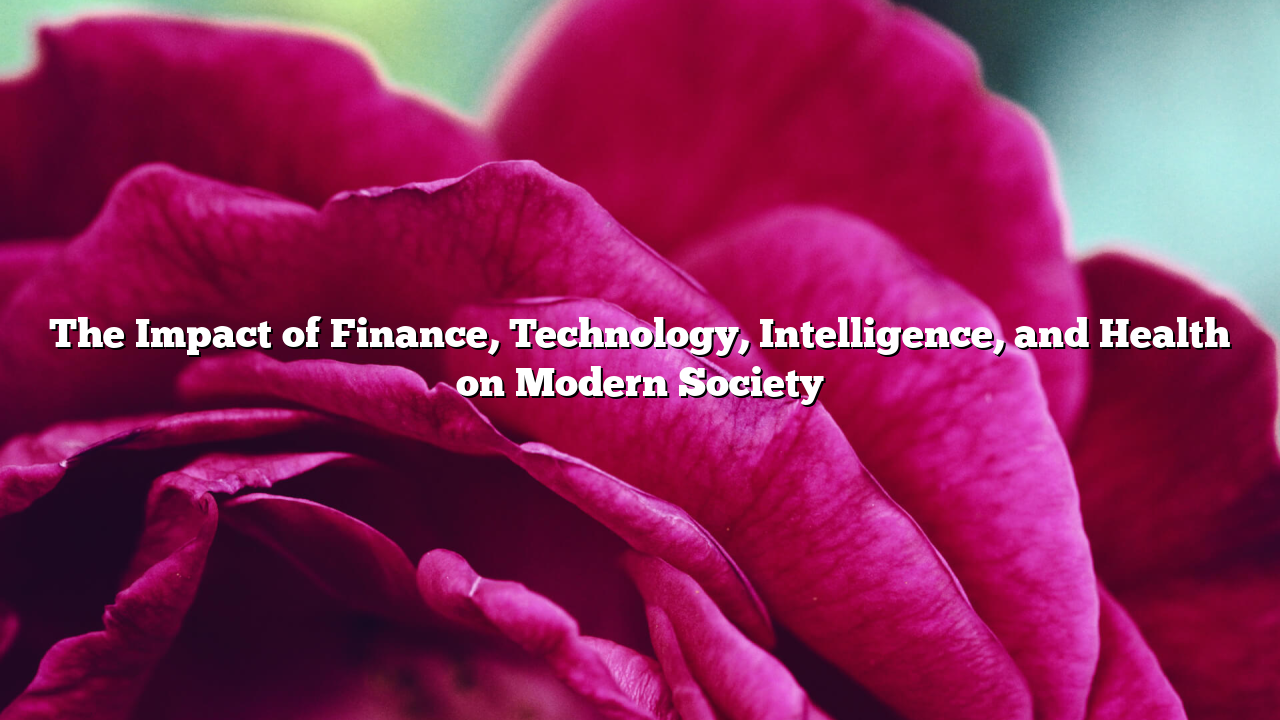

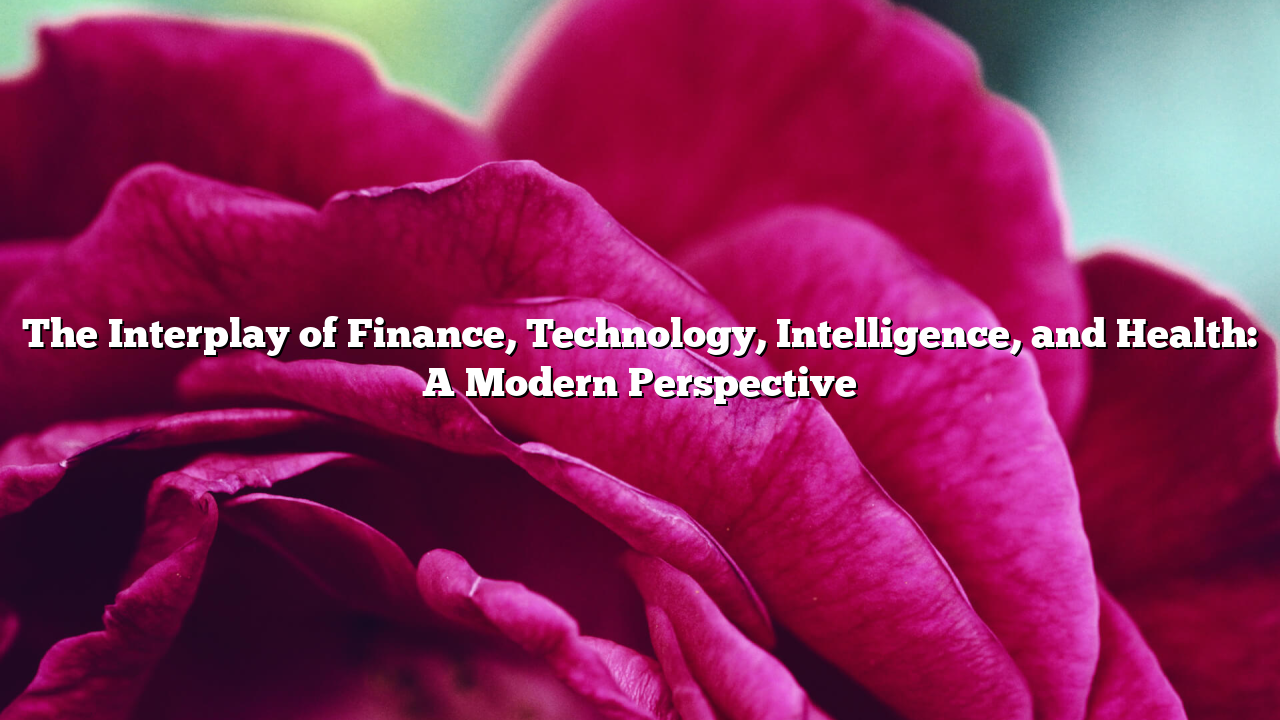
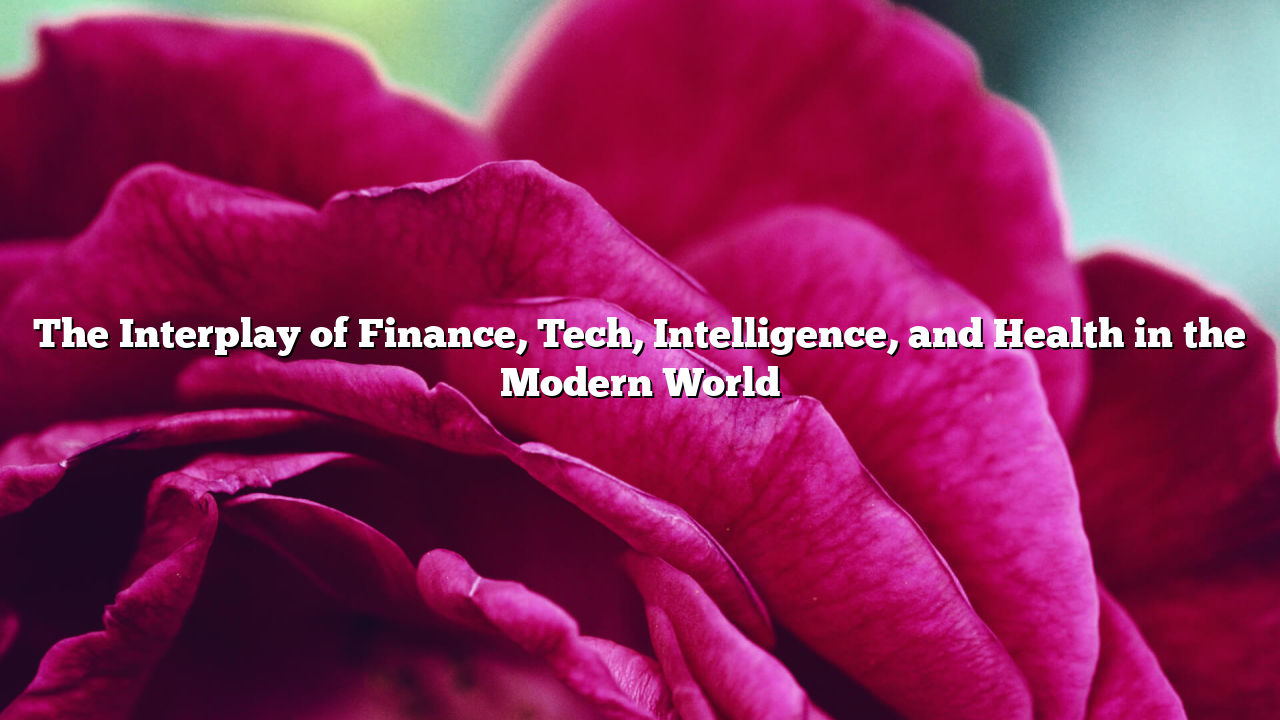
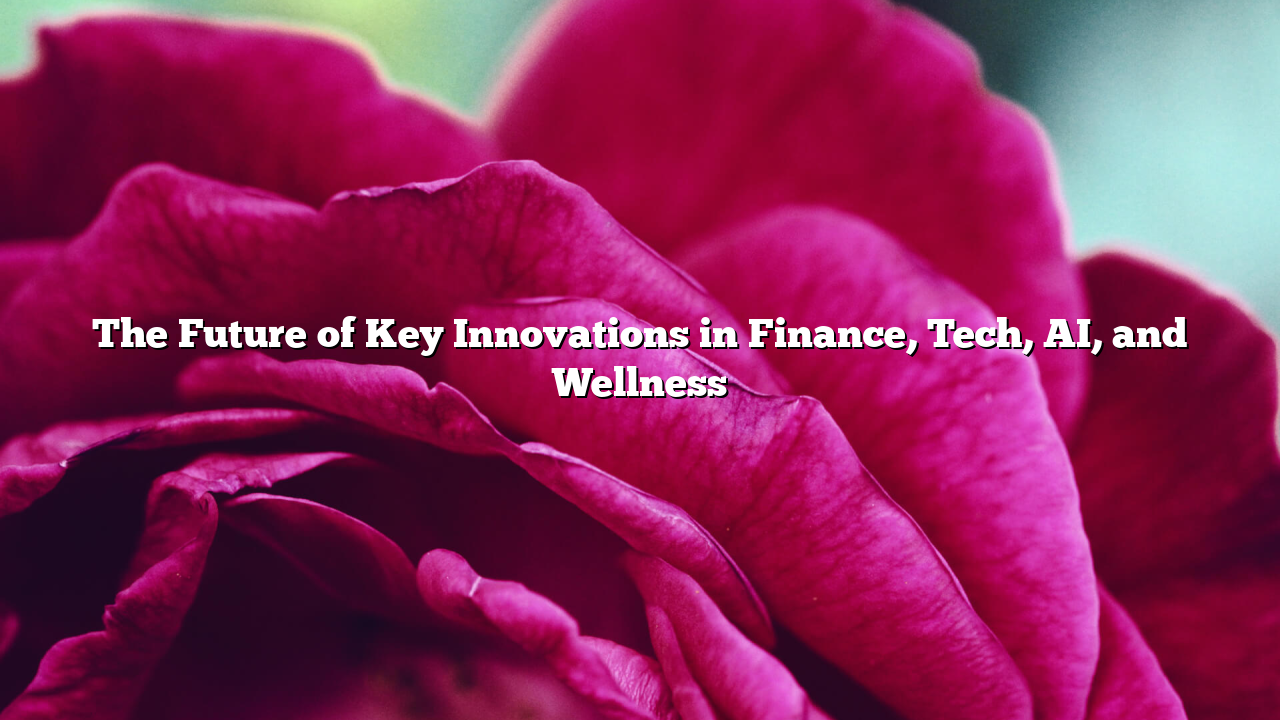


Leave a Reply